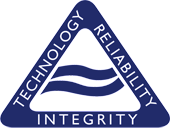If your internal quality system specifies that you use an ISO 17025 accredited calibration laboratory for your mass flow controller calibration needs, you are probably assuming all calibration laboratories accredited to that specification have the same capabilities. Accreditation to the ISO 17025 specification results in the issuance of an accreditation certificate, and a scope of accreditation, which lists the specific parameters covered by the accreditation (ie, gas flow), the type equipment used to make the measurement (ie, Bell prover primary standard), the full range of values (ie, 1 sccm to 1,000,000 sccm), and the calculated uncertainty of that specific measurement (ie, .27% of reading). Be aware, there is a significant, unstated gray area in the issuance of that certificate.
When the accredited laboratory undergoes the audit process the auditor covers only the services and capabilities claimed by that laboratory. If the laboratory claims they only take flow data, then the audit covers only the process and equipment used in taking flow data. It does not cover any other service, like disassembly/reassembly, cleaning, reconfiguration (range or gas change), repair, or the adjustment/recalibration of the device. This means that they cannot (OK, should not) issue you a certificate of calibration certified to the ISO specification if they performed any of those services as part of the calibration process because those processes have not been audited and the lab has not demonstrated competency in meeting the requirements of the ISO standard.
How do you know this? You do not! The scope of accreditation assumes that any processes or services claimed as part of the calibration process are included in the audit and by definition meet the ISO 17025 standard, but it does not define any of those capabilities other than generation of flow data. At this point this becomes an honor system. A system that says “if I tell the auditor I am doing it, I have been audited, if I do not tell them then I do not need to be audited”. You could ask your vendor if they are certified to ISO 17025 for the “repair and adjustment” of your device (good luck on that answer), but the only way you could know for sure would be to see the actual audit report from the accrediting body, which I doubt you are going to do.
Coastal Instruments, Inc. has been audited and accredited to ISO/IEC-17025:2005 and ANSI/NCSL Z540-1-1994, for all the services that we perform…. period. That includes the cleaning, replacement of parts, repair, adjustment, reconfiguration, and recalibration of your device. That audit process includes the procurement system for spare parts, tools, and the software used for the repair and reconfiguration, the process for disassembly, cleaning and reassembly, and the adjustment of the device after the “as found” data has been taken. Unfortunately our scope of accreditation only says we can generate accredited data on the device, just like everybody else that only takes data on a device. If your calibration vendor is performing any of these services as part of the accredited calibration, they should be able to prove they have been audited to do so. If you are getting “as found” and “as left” data, and they are different, then the vendor is performing adjustments which should be part of the audit process. If you are being charged for the repair or reconfiguration of your device as part of the accredited calibration process, that process should have been part of the audit. If they were not, the calibration certificate you have been issued is questionable, and you are not getting the protection of using an accredited vendor that you assume you will get, and that you should get.
It has been very frustrating for Coastal Instruments to make the effort we have made to comply with the full intent of the standard and yet nothing in our scope reflects this, nor is there any component of our certificate or scope of accreditation that will differentiate Coastal Instruments from the labs that can only take a set of data. We have petitioned the accrediting body to address this issue, and while they do agree that this is a significant gap in the accreditation process, there appears to be no short term solution. In the meantime, all we can do is bring attention to this issue and make the offer that any customer who would like to see our full audit report, which defines every system covered in the audit, can do so by contacting our Quality Manager. Will your current ISO 17025 vendor make that offer?

